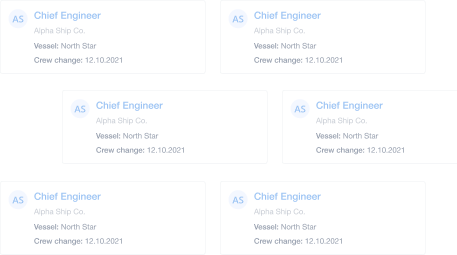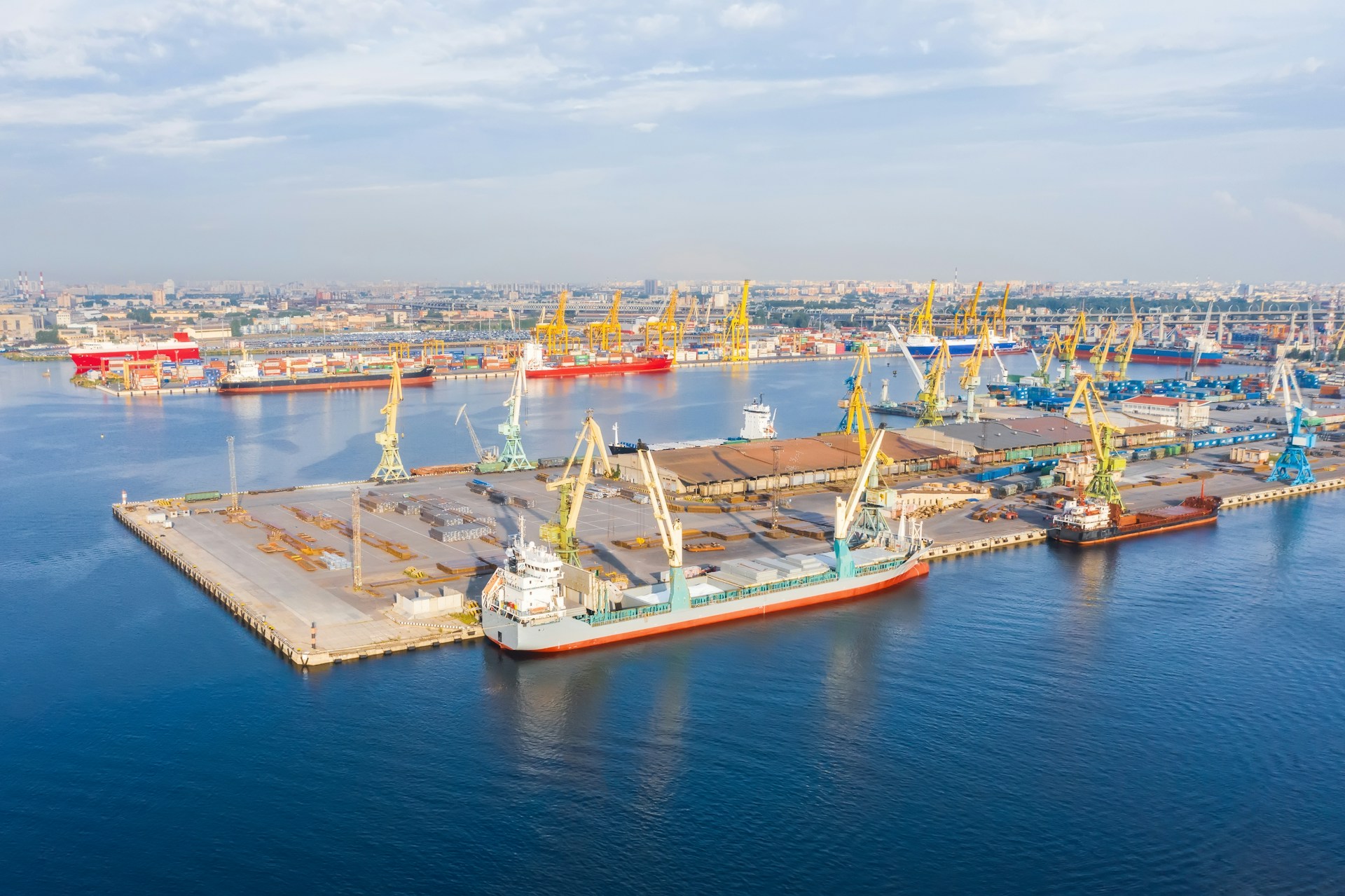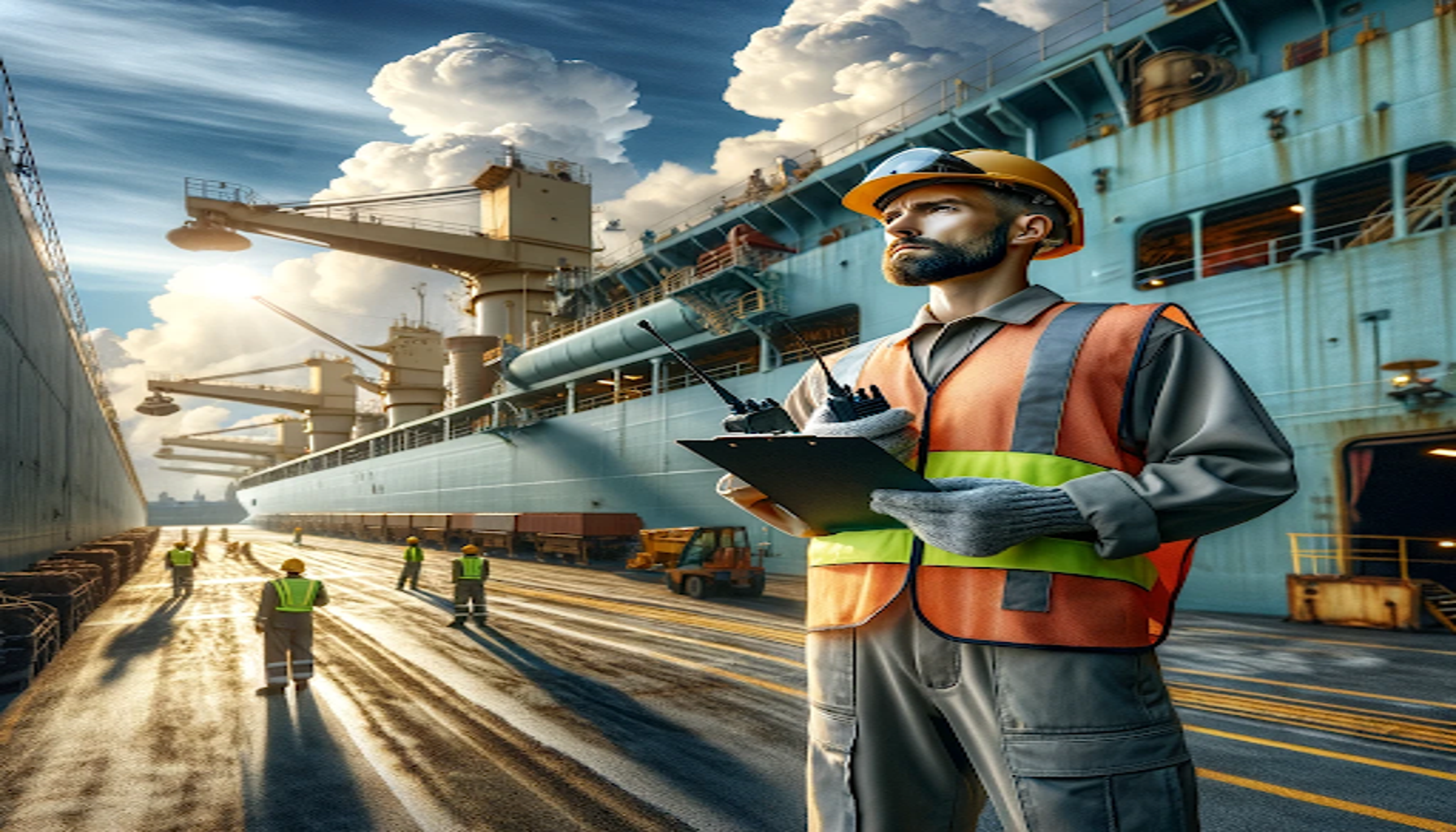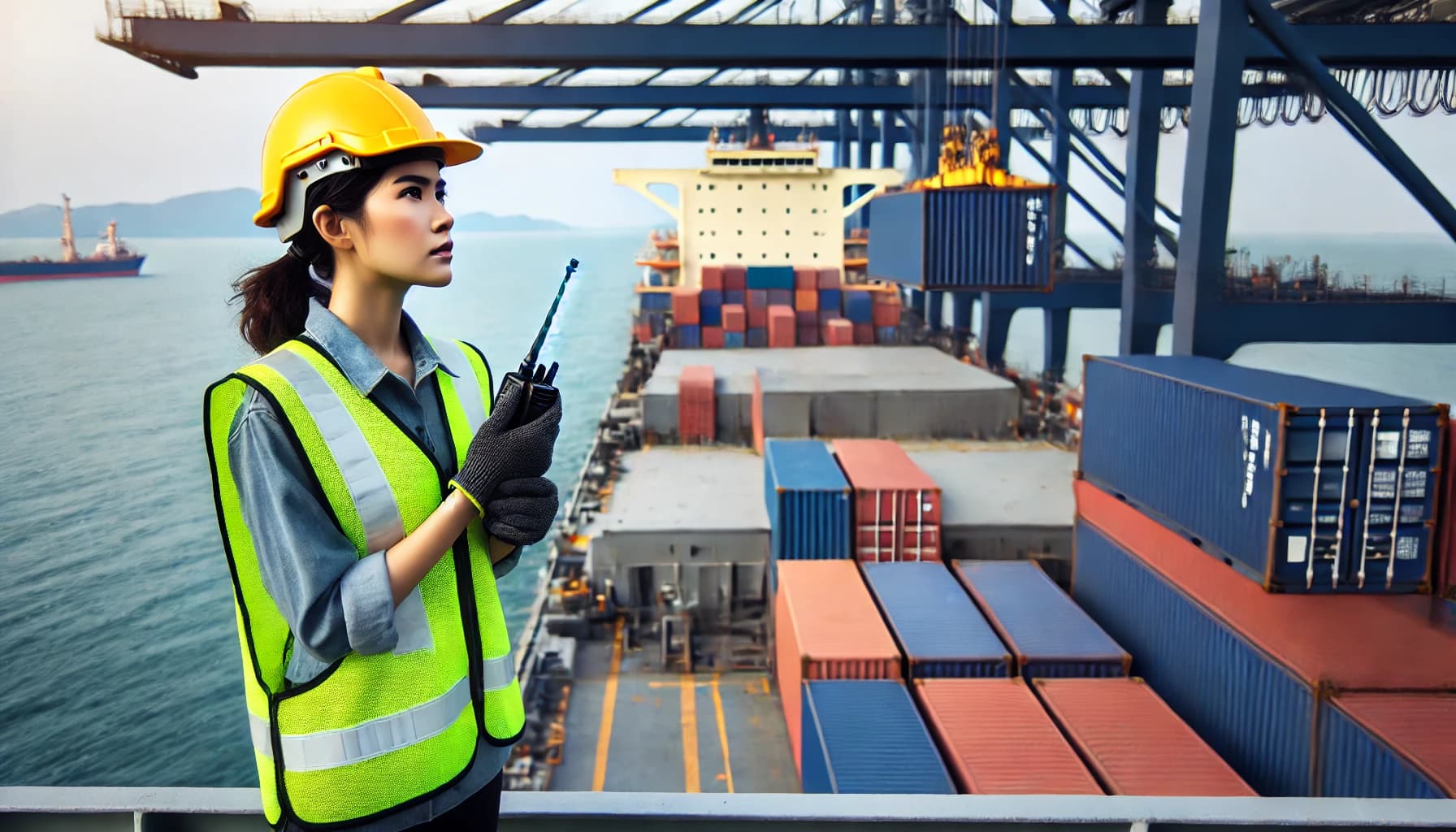What Does the Engine Department on a Commercial Vessel Do?
May 30, 2024 · 11 mins read ·
Jobs at Sea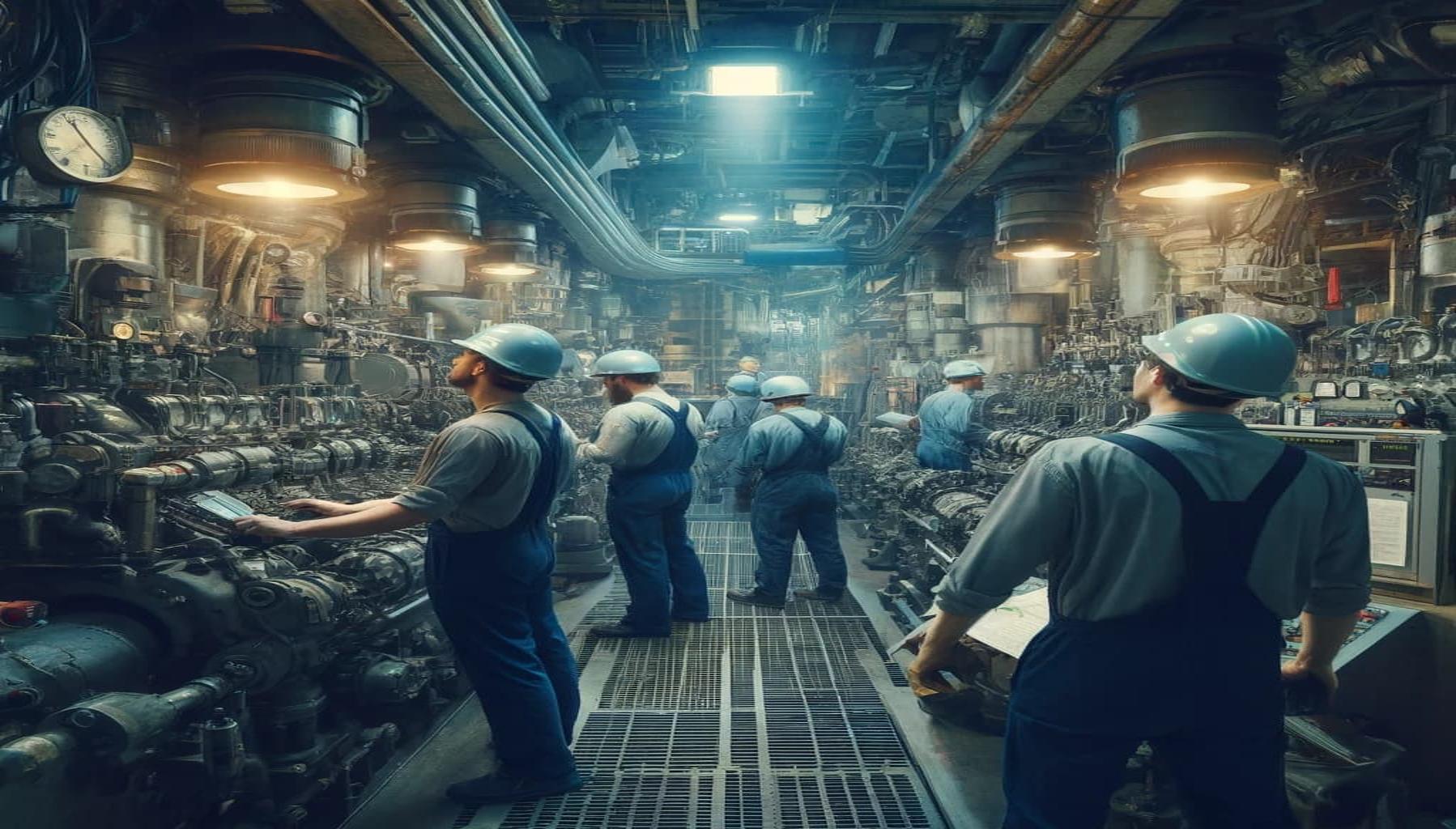
Just like many businesses and workplaces, did you know that ships also have departments? These are led by a Head of Department and consist of various staff members - or crew.
On the majority of commercial ships, such as cargo ships and tankers or oil carriers, there are three of these departments: The Deck Department, which consists of Officers and Ratings such as the Chief Officer and the Bosun, and the Stewards Department which is staffed by the ship’s Cook and Messman, as well as crew members such as stewards, waiters and bartenders on passenger ships.
The third of these departments is the Engine Department. On a commercial vessel such as a cargo or container ship this is a critical component of the vessel’s operations, responsible for the maintenance and functioning of all mechanical and electrical systems onboard.
We’ll dive into what the department does first and then take a closer look at its crew members.
The Engine Department on a ship’s responsibilities
In general terms, a ship’s Engine Department ensures that the vessel operates efficiently, safely, and in compliance with environmental regulations.
Read more: Maritime Careers: Deciding Between the Deck & Engine Departments
At the heart of the Engine Department is the main engine which powers the ship. This massive diesel engine converts the chemical energy of fuel into mechanical energy, propelling the ship through the water.
Alongside the main engine, there are numerous auxiliary systems that are essential for both the engine's operation and the vessel's overall functionality. These include generators for electrical power, boilers for heating, and various systems for air conditioning, refrigeration, and water desalination.
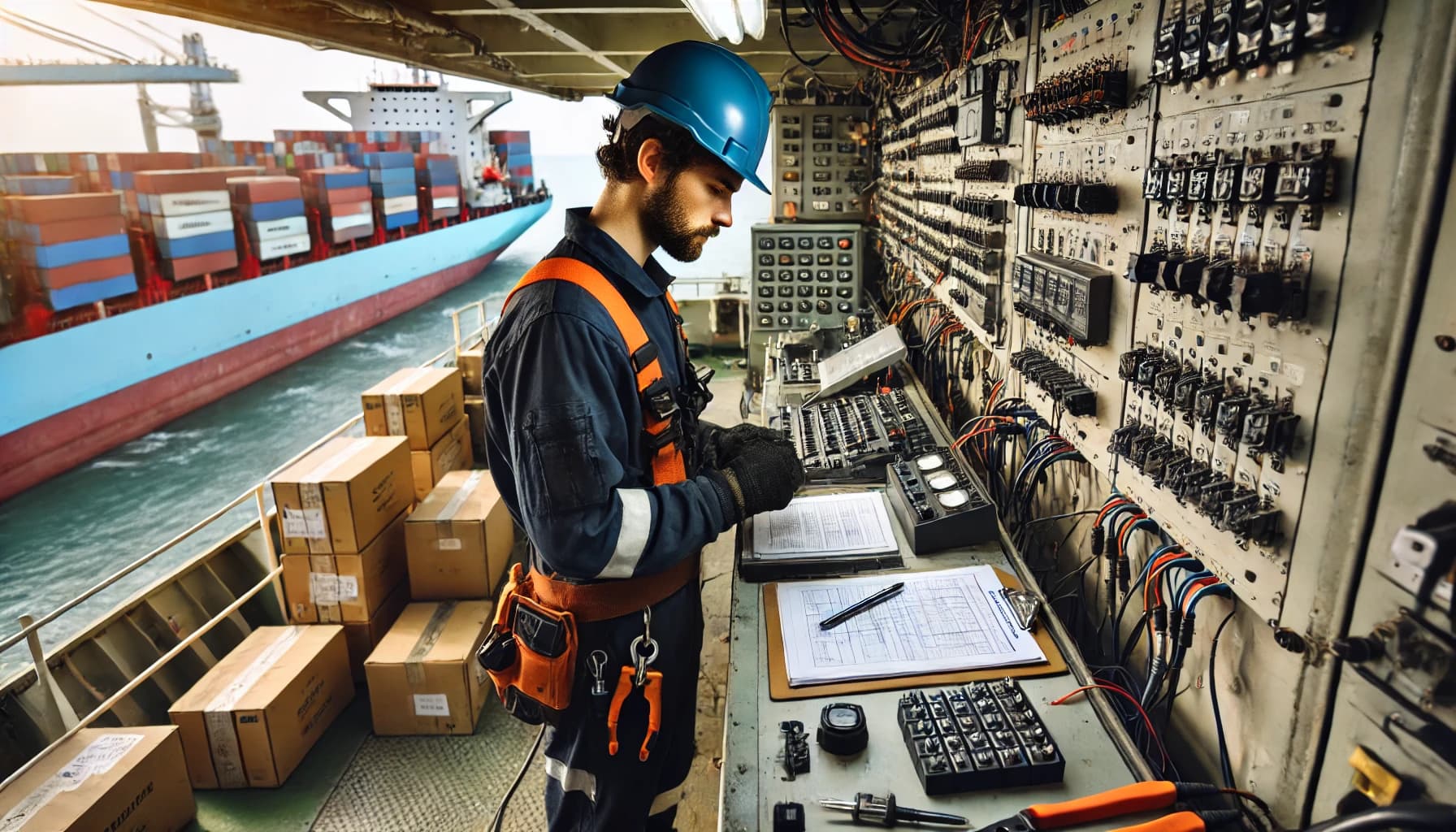
The Engine Department is typically staffed by a team of highly skilled maritime professionals, led by the Chief Engineer. The Chief Engineer holds ultimate responsibility for the engineering crew and all technical operations.
Supporting the Chief Engineer are several Officers and Ratings, including First, Second, and Third Engineers, as well as Electrical Officers who specialize in the ship's electrical systems.
Read more: Interview Questions & Answers for Marine Engineering Jobs
The duties of the Engine Department are diverse and complex, ranging from routine maintenance and repairs to emergency troubleshooting. Regular tasks include monitoring the engines and auxiliary equipment, conducting periodic inspections, and ensuring that all machinery is lubricated and functioning at optimum levels.
The Engineering Team must also keep detailed logs of all operations and maintenance activities, adhering to strict safety and environmental policies.
One of the key challenges for the Engine Department is energy efficiency. Modern container ships are equipped with sophisticated systems designed to minimize fuel consumption and reduce emissions.
This includes technologies such as waste heat recovery systems, which utilize the heat from the ship’s exhaust gasses to generate additional power. Engineers are constantly monitoring these systems to ensure they are operating correctly and adjusting settings as necessary to maintain efficiency.
In emergency situations, the Engine Department is crucial. Whether dealing with a mechanical failure, a power outage, or firefighting, the team is trained to respond swiftly and effectively to prevent escalation and ensure the safety of the vessel and its crew.
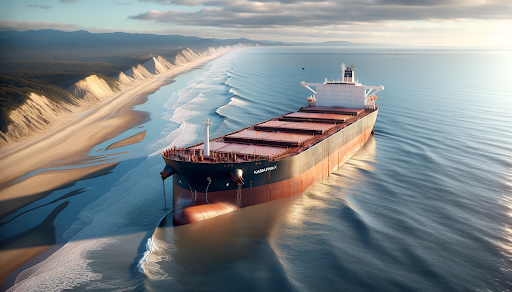
Who works in the Engineering Department on a ship?
As mentioned, the crew in the Engineering Department on a merchant ship monitor, maintain, and mend if necessary, the mechanical and electrical machinery and instruments onboard a ship. But who are they?
In the merchant navy / merchant marines there is a strict hierarchy of ranks on board a vessel. From the Captain (usually called the Master) at the head of the chain down to the youngest Deck Cadet or Trainee Messman, one’s superiors must be obeyed and respected at all times.
The highest ranking crew members in the Engineering Department are the Officers, who are as follows:
- Chief Engineer
- Second Engineer
- Third Engineer
- Fourth Engineer
- Fifth Engineer (Trainee Engineer)
- Electro-Technical Officer
Think of the Officers on a ship as the managers of their respective departments. Below them are the Ratings, or crew:
- Motorman
- Fitter
- Wiper
- Trainee Wiper
Who are the Engineering Officers on a commercial vessel?
Depending on the type of vessel and the size, there may be only one of each rank or there may be more. There’s no hard and fast rule.
Chief Engineer
The Chief Engineer is the head of the Engineering Department on a vessel. He or she has overall leadership and responsibility for the department, the crew within it and the work performed. The duties of a Chief Engineer include planning, managing, and carrying out tasks as necessary.
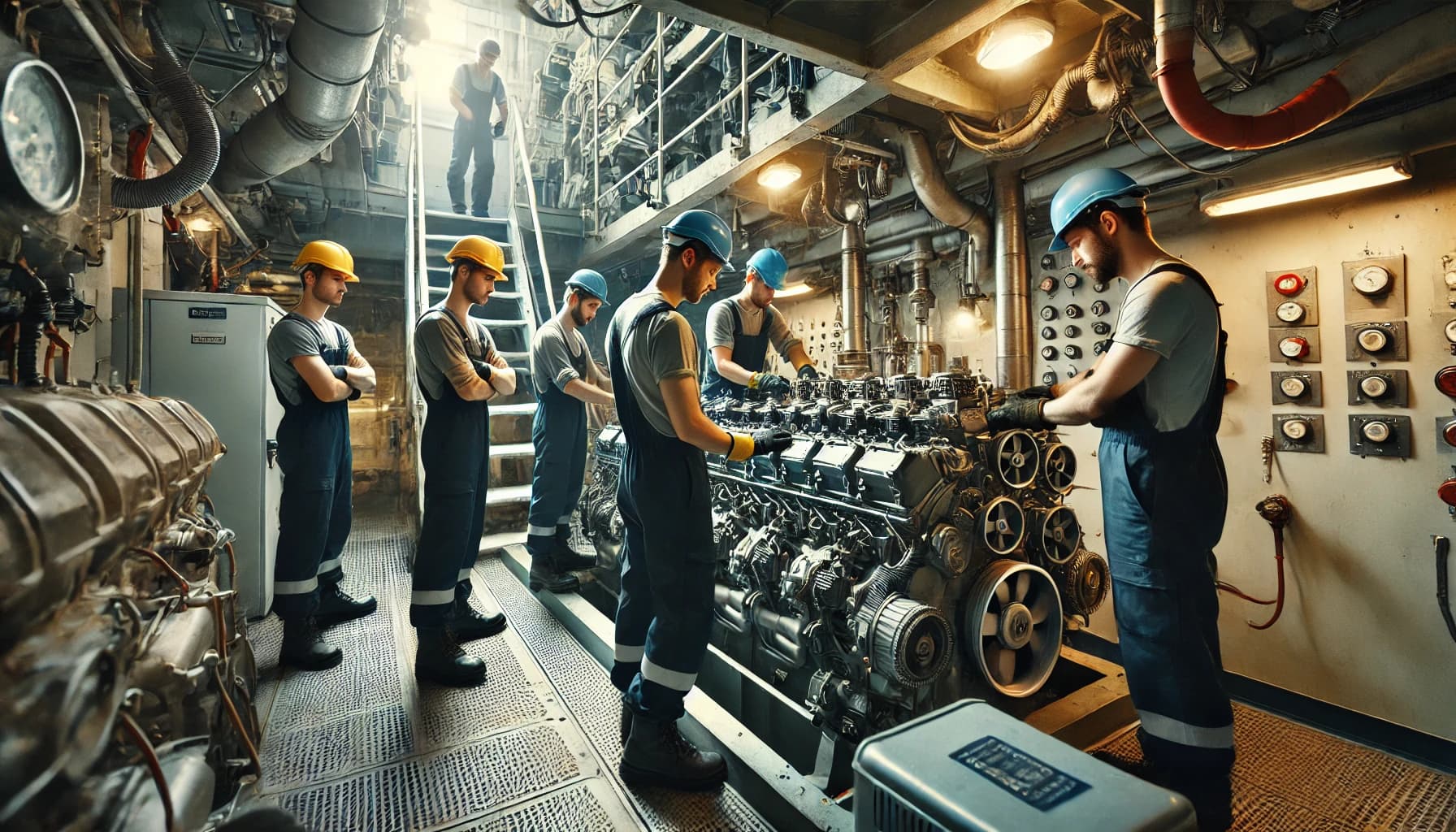
They also manage his or her crew members that lie under their leadership while providing on-the-job training and mentorship to the lower ranking engineers. A Chief Engineer must ultimately ensure that the vessel’s mission is a successful one by supervising, or personally performing, the often complex technical work.
Second Engineer / First Assistant Engineer
The Second Engineer (also called the First Assistant Engineer, depending on the shipping company) is responsible for supervising the daily maintenance and operation of the engine department. They are second in command of the Engine Department of the ship after the Chief Engineer and will assume leadership responsibilities should the Chief not be available or is ill or incapacitated.
Third Engineer / Second Assistant Engineer
The Third Engineer or Second Assistant Engineer is responsible for the correct operation, maintenance, upkeep, and condition of the boilers, and auxiliary equipment and machinery, as well as the fire room. He or she monitors all pump lines, including the emergency lines, the provision reefer, and the ship’s spare and stores.
Fourth Engineer / Third Assistant Engineer
The general duties for a Fourth or Third Assistant Engineer vary from ship to ship however they are usually tasked with controlling the main propulsion systems, water systems, and dealing with anything else asked of them from their superior Officers. They will also work with HVAC (heating, ventilation, and air conditioning) systems and electronic equipment.
Fifth Engineer / Engine Cadet
The Fifth Engineer or Engine Cadet is normally assigned any other tasks that are documented on the planned job schedule but are not allocated to a higher rank of Engineer. They are essentially a Junior Engineer, or a trainee, who is learning on the job. They may be given duties such as checking soundings (levels) of IOPP tanks and reporting the results to their superior and maintaining areas in the Engine Department and its tools and equipment.
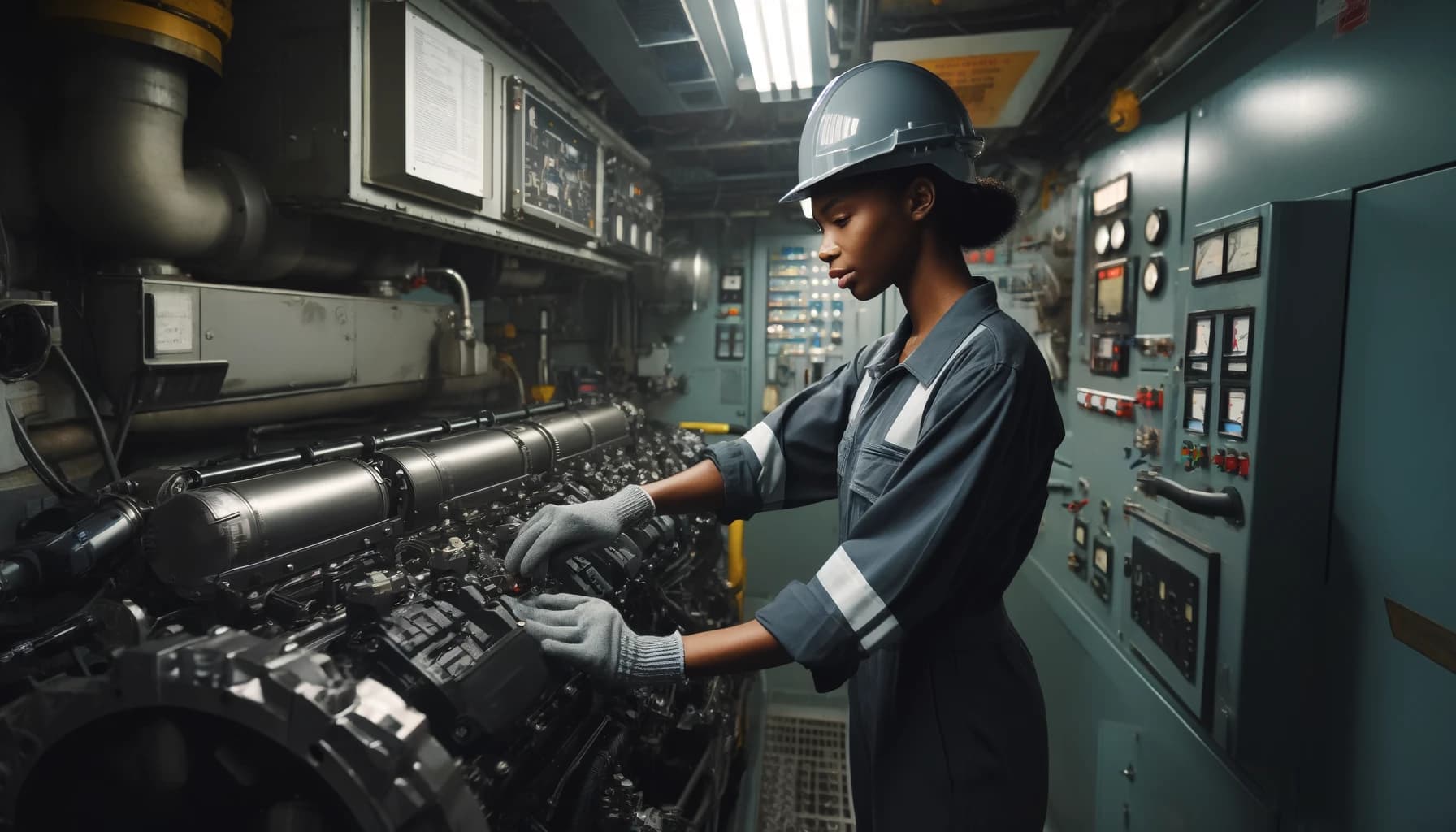
Electro-Technical Officer
The Electro-Technical Officer duties focus on monitoring and maintaining the ship’s electrical equipment. The tasks involved include ensuring maintenance schedules are planned and followed, troubleshooting problems with the equipment or systems under their care, diagnosing faults and potential problems and repairing where necessary, assisting the Chief Engineer and other members of the department with tasks as delegated, and coordinating with technicians onshore if required.
Who are the Ratings or crew on a commercial vessel?
Working below the Engineering Officers are the Ratings or crew. A Rating is an unlicensed seafarer who works in a department but who is not an Officer.
Motorman
A Motorman will stand watch with the Engine Officer on duty and will help with repair and maintenance as well as carry out more basic tasks in the engine room and around the vessel such as cleaning or painting. They may make routine checks of machinery, the bilge and pump rooms, and the tanks. They will also inspect equipment such as turbines, condensers, and pumps and must record their findings and report any issues they find to the Officers.
Fitter
A Fitter in the Engine Department of a ship plays a role in the routine maintenance and emergency repairs of the mechanical aspects of the ship's machinery. This includes engines, pumps, compressors, and other mechanical systems. They may also be involved in the installation of new machinery and equipment, which might include using their skills in welding and metal fabrication. Fitters are often among the first to diagnose problems when they arise and provide technical assistance to the Engineering Officers.
Wiper and Trainee Wiper
The Wiper, and in particular the Trainee Wiper, is an entry level cargo ship job, and as the name suggests, includes doing a lot of wiping and cleaning! This means wiping down the vessel’s engine spaces, equipment and machinery and making sure they are kept clean so that they can operate correctly and efficiently. This also involves greasing and degreasing and generally making sure that the engine room and work spaces are kept clean and tidy.
Working in the Engineering Department on a ship: Conclusion
As you can probably tell from the very brief seafarer job descriptions we’ve given you above, the Engine Department is a vital organ of a commercial ship, playing an indispensable role in every aspect of the vessel’s journey.
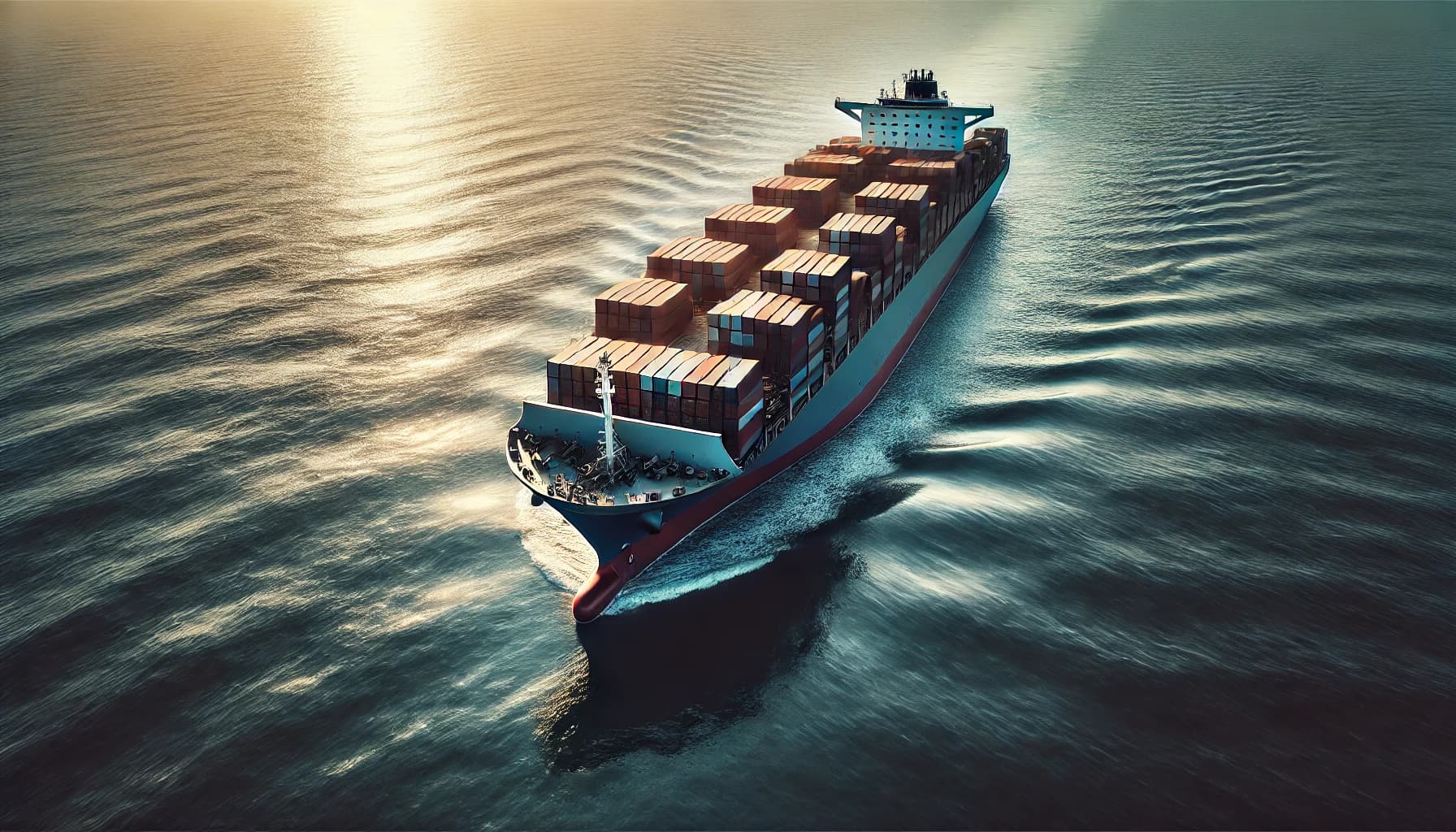
Without this department, vessels from container and cargo ships to bulk carriers and from cruise ships to chemical tankers, would be unable to function. This highlights the importance of the skilled professionals who work tirelessly behind the scenes to keep these massive vessels, and global trade, running smoothly.
Are YOU looking for a job in the Engineering Department on a commercial vessel? Take a look at Martide’s online seafarer jobs board and check out our Chief Engineer jobs, Second Engineer job vacancies, Wiper jobs on ships and more.

Eve Church
Eve is Martide's content writer, publishing regular posts on everything from our maritime recruitment and crew planning software to life at sea. Eve has been writing professionally for more than two decades, crafting everything from SEO-focused blog posts and website landing pages to magazine articles and corporate whitepapers.
UK

is the only site for maritime jobs
